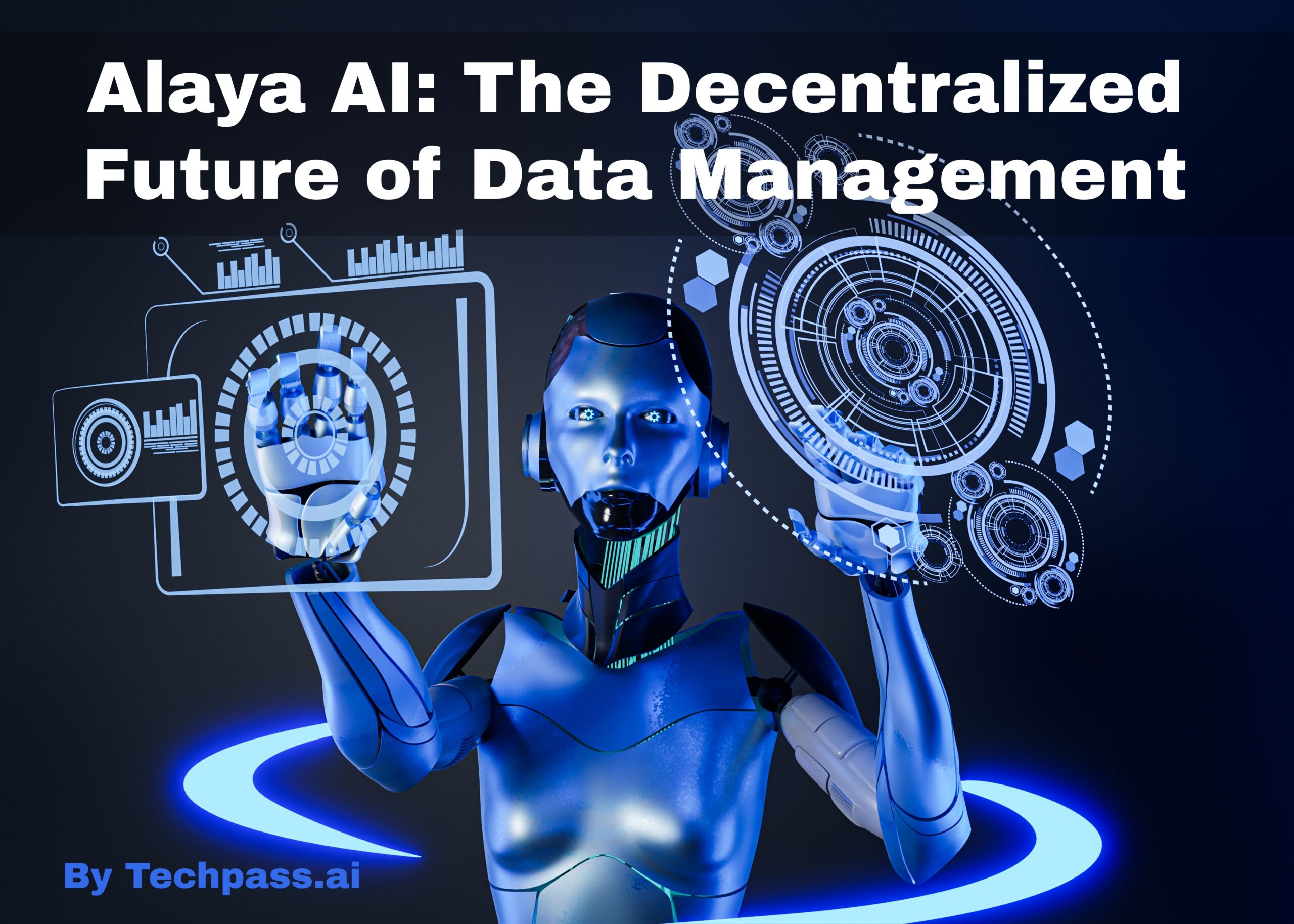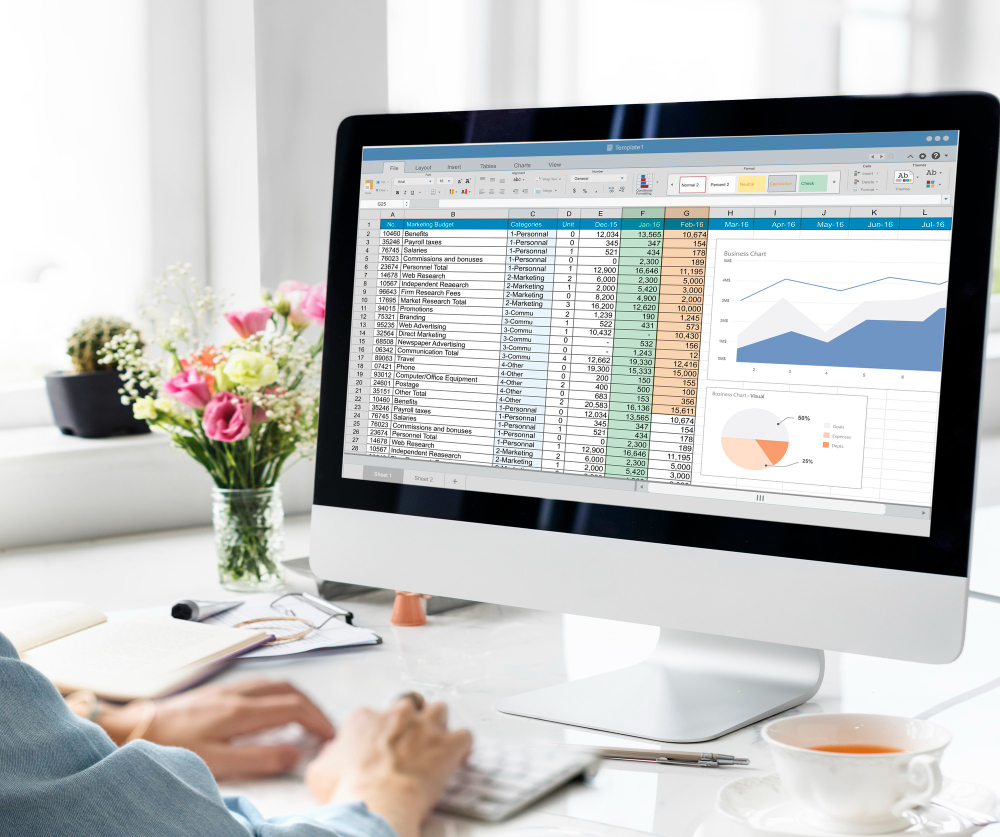
Table of Contents
Introduction to Alaya AI
What is Alaya AI?
Alaya AI is an innovative decentralized platform that integrates artificial intelligence and blockchain technology. This unique combination is designed to manage, improve, and streamline the collection, annotation, and utilization of data.
The Growing Need for Decentralized AI Solutions
With the exponential growth of data generation worldwide, traditional centralized systems are becoming insufficient for processing and managing these massive datasets. Decentralized AI platforms like Alaya AI present a solution to these issues by offering enhanced scalability, security, and transparency.
The Importance of Data in the AI Ecosystem
Data is the lifeblood of AI. High-quality, well-annotated datasets are essential for training AI models to perform various tasks efficiently. Alaya AI tackles the challenges associated with data management and annotation, ensuring that AI models get access to cleaner, more accurate data.
Alaya AI: The Confluence of AI and Blockchain Technology
The Role of AI in Data Management
Artificial intelligence has revolutionized data processing by automating complex tasks such as data cleaning, analysis, and pattern recognition. Alaya AI leverages AI to handle large volumes of data, reducing the manual labor involved in these processes.
Blockchain: A New Paradigm for Data Security and Transparency
Blockchain technology, known for its decentralized nature, offers a secure, immutable ledger for tracking data transactions. By combining AI with blockchain, Alaya AI ensures the integrity and transparency of data operations, allowing all participants in the ecosystem to verify data authenticity.
Why Alaya AI is Unique
Alaya AI’s decentralized model enables collaborative data management across various industries. It stands apart from other platforms by offering superior scalability, security, and the ability to handle large-scale datasets without compromising performance.
Key Features of Alaya AI
Data Annotation and Labeling
Accurate data labeling is crucial for AI model training. Alaya AI uses advanced AI techniques to automate the annotation process, saving time and ensuring consistency in data labeling.
Scalable Data Management
As a decentralized platform, Alaya AI is highly scalable, meaning it can handle enormous datasets without the limitations of traditional, centralized systems. This scalability is essential for organizations dealing with large volumes of data across multiple locations.
Enhanced Security through Blockchain
By using blockchain for data storage and transaction tracking, Alaya AI provides unparalleled security. All data transactions are recorded on an immutable ledger, ensuring data integrity and preventing unauthorized modifications.
Collaboration and Decentralization
Alaya AI promotes collaboration by allowing multiple participants to contribute to the data ecosystem. This decentralized approach fosters innovation and allows for the sharing of high-quality, well-annotated datasets across industries.
The Importance of Data Annotation in AI
Why Data Annotation is Critical for AI Models

AI models rely on labeled data to learn and improve over time. High-quality data annotation ensures that AI models can accurately interpret and make decisions based on the data they process. Poorly annotated data can lead to significant inaccuracies in AI predictions.
The Role of Alaya AI in Automating Data Annotation
Alaya AI uses AI-powered algorithms to automate the data annotation process, significantly reducing the time and effort required. This automation not only speeds up the process but also improves the consistency and accuracy of data labeling.
The Benefits of Automated Annotation for Businesses
Automated data annotation allows businesses to process large datasets quickly and efficiently. This speed and accuracy give companies a competitive edge by enabling faster AI model development and deployment.
Blockchain in Alaya AI: Enhancing Data Security and Transparency
The Advantages of Blockchain for Data Management
Blockchain technology offers numerous benefits for data management, including enhanced security, transparency, and immutability. These features are particularly important in industries where data integrity is critical, such as healthcare and finance.
How Alaya AI Utilizes Blockchain for Data Security
By integrating blockchain, Alaya AI ensures that all data transactions are recorded on a secure, immutable ledger. This ledger allows for the verification of data authenticity, reducing the risk of data tampering or unauthorized access.
The Role of Decentralization in Ensuring Data Integrity
Alaya AI’s decentralized structure means that data is not controlled by a single entity, reducing the risk of data breaches and ensuring that all participants in the ecosystem can verify the accuracy of the data.
Use Cases of Alaya AI
Alaya AI in Healthcare: Revolutionizing Patient Data Management
In the healthcare industry, managing sensitive patient data securely and efficiently is a top priority. Alaya AI offers a solution by providing secure, decentralized data management systems that ensure patient data is both accurate and protected.
Alaya AI in Finance: Enhancing Security and Efficiency
The financial sector deals with vast amounts of sensitive data daily. Alaya AI’s blockchain-based platform provides enhanced security, preventing fraud and unauthorized data manipulation while also ensuring the efficiency of financial transactions.
Alaya AI in Supply Chain Management: Improving Transparency and Traceability
Supply chain management involves tracking goods and services across multiple points. Alaya AI’s decentralized platform enhances transparency and traceability, allowing businesses to verify the authenticity of products and reduce inefficiencies in the supply chain.
Challenges and Future Directions for Alaya AI

Overcoming Adoption Barriers
Despite its numerous advantages, decentralized AI platforms like Alaya AI face challenges in widespread adoption. These challenges include the need for regulatory frameworks, the high cost of implementation, and the complexity of blockchain technology.
Potential for Growth in Various Industries
As more industries recognize the benefits of decentralized data management and AI, Alaya AI is poised for significant growth. Its potential to revolutionize sectors such as healthcare, finance, and supply chain management makes it an exciting platform to watch in the coming years.
The Role of Partnerships and Collaborations in Alaya AI’s Success
Collaborations with industry leaders and academic institutions will play a crucial role in Alaya AI’s success. By fostering partnerships, the platform can continue to innovate and expand its offerings, driving adoption across various sectors.
The Role of AI in Data Processing and Automation
AI-Driven Automation for Enhanced Efficiency
Artificial Intelligence (AI) has significantly improved the efficiency of data processing by automating various tasks that previously required manual intervention. AI algorithms can sift through massive datasets in seconds, identify patterns, and make predictions based on this data. Alaya AI leverages these AI capabilities to streamline and automate the collection, annotation, and utilization of data.
Reducing Human Error through AI
Human involvement in large-scale data processing often leads to errors, whether due to fatigue, oversight, or complexity. AI eliminates much of the human error by handling repetitive tasks with consistent accuracy. Alaya AI ensures data integrity and high-quality outputs by utilizing automated AI tools for critical functions such as data annotation and validation.
Cost Reduction through AI Integration
Another significant advantage of AI is the potential for cost savings. Automation of data management tasks reduces the need for extensive human resources, cutting down on labor costs. Alaya AI provides businesses and organizations a way to manage vast amounts of data more efficiently without the need for a large workforce, ultimately lowering operational costs.
How Alaya AI’s Decentralization Transforms Data Management
The Power of Decentralization in Data Handling
Traditional data management systems are often centralized, meaning data is stored and controlled by a single authority, such as a company or institution. This centralization poses risks like data breaches, single points of failure, and lack of transparency. Alaya AI’s decentralized model removes these concerns by distributing data across a network of nodes, making it nearly impossible for any single entity to manipulate or control the data.
The Benefits of Peer-to-Peer Data Sharing
One of the core advantages of decentralization is the peer-to-peer (P2P) data-sharing model. Alaya AI enables multiple participants within a network to share and access data in a secure manner. This P2P model fosters collaboration, drives innovation, and ensures that all parties can trust the integrity of the shared data.
Data Sovereignty: Empowering Users with Control Over Their Data
Alaya AI’s decentralized architecture gives users more control over their data, allowing them to decide who can access it and under what conditions. This data sovereignty is particularly important in a world where concerns about data privacy and misuse are increasing. Users can retain ownership of their data while still contributing to collaborative projects and benefiting from the power of AI.
How Blockchain Technology Enhances Trust in Alaya AI
Blockchain’s Role in Verifying Data Authenticity
One of blockchain’s greatest strengths is its ability to create trust in a trustless environment. In traditional systems, participants must rely on third parties to verify the authenticity of data. Alaya.ai uses blockchain to remove the need for intermediaries by creating a transparent, immutable ledger that records every data transaction. This ensures that all data can be verified without the need for a centralized authority.
Smart Contracts: Automating Transactions and Data Sharing
Blockchain technology also introduces the concept of smart contracts—self-executing contracts where the terms of the agreement are written directly into code. Alaya.ai utilizes smart contracts to automate data transactions, ensuring that data is only shared or accessed under predefined conditions. This increases efficiency, reduces the potential for disputes, and ensures compliance with agreed-upon rules.
The Immutability of Blockchain Records
The immutability of blockchain is a key factor in ensuring the integrity of data stored on the Alaya.ai platform. Once a record is added to the blockchain, it cannot be altered or deleted. This provides a permanent, tamper-proof history of data transactions, making it easier to track the provenance of data and ensure its authenticity.
Industry-Specific Applications of Alaya AI
Healthcare: Securing Patient Data with Alaya AI
The healthcare industry generates enormous volumes of sensitive patient data that must be securely stored and managed. Alaya AI’s decentralized approach, combined with blockchain’s security features, makes it an ideal solution for healthcare providers. By using Alaya AI, hospitals and clinics can ensure that patient data remains secure, while still making it accessible to authorized personnel for research or treatment purposes.
Protecting Patient Privacy
Patient privacy is a critical concern in healthcare. With Alaya AI’s decentralized system, patient data is protected from unauthorized access or tampering. Blockchain technology ensures that all interactions with patient data are transparent and traceable, providing an additional layer of trust and security.
Facilitating Research and Collaboration
In addition to improving data security, Alaya AI makes it easier for healthcare institutions to collaborate on research. With Alaya AI, researchers can share anonymized datasets securely, without compromising patient privacy. This opens up new possibilities for medical breakthroughs and innovation.
Finance: Enhancing Transparency and Security in Financial Transactions
In the financial industry, security and transparency are paramount. Financial institutions must handle sensitive customer data and ensure the accuracy of transactions. Alaya.ai offers a solution by using blockchain to track and verify financial transactions. This technology reduces the risk of fraud and ensures that all financial activities can be audited and verified.
Reducing Fraud in the Financial Sector
Fraud is a significant issue in the financial sector, costing companies billions of dollars every year. By using blockchain technology, Alaya.ai creates a transparent, immutable record of all financial transactions, making it difficult for bad actors to manipulate data or commit fraud.
Enabling Cross-Border Payments with Blockchain
Cross-border payments are often slow and expensive due to the involvement of multiple intermediaries. Alaya.ai simplifies this process by using blockchain to facilitate faster, more secure transactions. This allows businesses to send and receive payments across borders with fewer delays and lower fees.
Supply Chain: Improving Product Traceability
Supply chain management is another area where Alaya AI’s combination of AI and blockchain can have a profound impact. With Alaya AI, businesses can track products from production to delivery, ensuring transparency and accountability at every stage of the supply chain.
Enhancing Product Authenticity Verification
Counterfeit goods are a major issue in many industries, from pharmaceuticals to luxury goods. Alaya AI helps businesses verify the authenticity of their products by tracking them through the supply chain on an immutable blockchain ledger. This ensures that consumers can trust that the products they purchase are genuine.
Reducing Supply Chain Inefficiencies
Supply chains are often complex and prone to inefficiencies. Alaya AI streamlines supply chain operations by automating data collection and processing. This leads to better decision-making, fewer delays, and improved overall efficiency in the movement of goods.
The Potential of Alaya AI for Decentralized Autonomous Organizations (DAOs)
What are DAOs?
Decentralized Autonomous Organizations (DAOs) are organizations that are run through smart contracts and governed by their members without the need for central leadership. DAOs operate on blockchain technology, allowing for transparent decision-making and efficient management of resources.

How Alaya AI Can Support the Growth of DAOs
Alaya AI’s decentralized structure and blockchain integration make it an ideal platform for DAOs. By automating data management and transaction verification, Alaya AI can help DAOs operate more efficiently, reducing the need for manual oversight and enabling faster decision-making.
The Role of AI in DAO Governance
AI can play a significant role in DAO governance by analyzing data and making recommendations based on predefined rules. Alaya AI’s AI-powered tools can help DAOs identify trends, predict outcomes, and make data-driven decisions, improving the effectiveness of decentralized governance.
Future Prospects and Expansion of Alaya AI
The Expansion of Decentralized AI Platforms
As data volumes continue to grow and the limitations of centralized systems become more apparent, decentralized AI platforms like Alaya AI are poised for widespread adoption. These platforms offer scalable, secure, and efficient solutions for managing and utilizing data, making them attractive to businesses across industries.
Alaya AI’s Vision for a Decentralized Future
Alaya AI envisions a future where data is managed in a decentralized manner, giving individuals and organizations more control over their data. By continuing to innovate and expand its capabilities, Alaya AI aims to lead the charge toward a more transparent, collaborative, and secure data ecosystem.
Challenges in Scaling Decentralized AI Platforms
While the potential for decentralized AI is vast, there are still challenges to overcome, such as regulatory hurdles, technological complexity, and the need for widespread education on the benefits of decentralization. Alaya AI is addressing these challenges by working closely with industry leaders and governments to create a more conducive environment for decentralized AI adoption.
Regulatory Challenges and Solutions for Alaya AI
The Importance of Regulatory Compliance
In industries such as healthcare, finance, and supply chain, strict regulations govern how data is collected, stored, and used. Compliance with these regulations is essential to ensure data security, privacy, and transparency. As a decentralized platform, Alaya AI faces several regulatory challenges that need to be addressed to ensure widespread adoption.
Addressing Data Privacy Regulations
With the rise of data privacy laws such as the General Data Protection Regulation (GDPR) in Europe and the California Consumer Privacy Act (CCPA) in the United States, organizations must take extra precautions when handling user data. Alaya AI’s decentralized structure can help organizations comply with these regulations by giving users more control over their data and ensuring transparency in data handling practices.
However, navigating these regulations can still be complex, especially when dealing with cross-border data flows. Alaya AI is designed to accommodate global data privacy regulations by offering customizable data storage solutions that ensure compliance with regional laws.
Overcoming Blockchain-Related Legal Hurdles
Blockchain technology itself faces certain regulatory challenges, particularly when it comes to data immutability. Because blockchain records cannot be altered or deleted, complying with “right to be forgotten” laws (such as those in the GDPR) becomes challenging. Alaya AI is working on innovative solutions, such as creating layers of encryption and privacy features that allow data to be hidden without violating blockchain’s immutability.
Collaborating with Regulators for a Decentralized Future
Alaya AI is proactively engaging with regulatory bodies to create frameworks that support decentralized technologies while ensuring compliance with existing laws. By working with governments, industry leaders, and regulators, Alaya AI can help develop policies that balance the benefits of decentralization with the need for data security and privacy.
The Role of Alaya AI in Ethical AI Development
Ethical Considerations in AI and Data Management
As AI becomes more powerful, ethical concerns around its use are growing. Issues such as data privacy, algorithmic bias, and transparency need to be carefully managed to ensure that AI technologies are used for the greater good. Alaya AI is committed to addressing these ethical considerations in its platform design and implementation.
Preventing Algorithmic Bias with Diverse Data Sets
AI models are only as good as the data they are trained on. If AI is trained on biased or incomplete datasets, it can produce biased outcomes, perpetuating discrimination in areas such as hiring, lending, and law enforcement. Alaya.ai mitigates this risk by enabling the collection of diverse, high-quality datasets from decentralized sources. This diversity reduces the likelihood of bias in AI models and promotes more equitable outcomes.
Ensuring Transparency and Accountability in AI Decision-Making
One of the criticisms of AI systems is their “black box” nature meaning it’s often unclear how AI models arrive at their decisions. Alaya.ai promotes transparency by using blockchain technology to record all data transactions and AI decision-making processes on an immutable ledger. This creates an auditable trail that can be reviewed by third parties, ensuring accountability and transparency in AI decisions.
Privacy-Preserving AI with Decentralization
Data privacy is another major ethical concern when it comes to AI. Alaya.ai’s decentralized approach ensures that individuals retain control over their data, reducing the risk of unauthorized access or misuse. Additionally, Alaya.ai incorporates privacy-preserving techniques such as federated learning, where AI models are trained locally on decentralized devices, ensuring that raw data never leaves the user’s control.
Alaya AI and Its Contribution to Sustainable Technology
Reducing Energy Consumption with Efficient Data Management
The increasing demand for data storage and processing has led to concerns about the environmental impact of large data centers. These facilities require massive amounts of energy to operate, contributing to the carbon footprint of the tech industry. Alaya.ai’s decentralized approach to data management reduces the need for centralized data centers, thereby minimizing energy consumption.
By distributing data storage and processing across a decentralized network, Alaya.ai eliminates the need for energy-intensive, centralized infrastructure. This not only makes data management more sustainable but also reduces operational costs for businesses.
Supporting the Circular Economy with AI and Blockchain
The circular economy is a model that promotes sustainability by reusing, recycling, and repurposing resources to minimize waste. Alaya.ai contributes to this vision by using AI to optimize supply chains, reduce waste, and ensure that resources are used more efficiently.
Blockchain technology also plays a role in the circular economy by providing transparency and traceability. Businesses can use Alaya.ai’s blockchain solutions to track the lifecycle of products, ensuring that they are properly recycled or repurposed at the end of their life cycle. This contributes to a more sustainable and environmentally friendly approach to business operations.
Promoting Green AI Initiatives
Green AI refers to the development of AI technologies that prioritize energy efficiency and environmental sustainability. Alaya.ai is at the forefront of the Green AI movement by optimizing its AI algorithms for energy efficiency and using decentralized networks that consume less energy than traditional centralized systems.
In addition to its own sustainability efforts, Alaya.ai provides tools for businesses to develop their own Green AI initiatives. By offering AI-powered solutions that reduce waste, optimize resource usage, and lower energy consumption, Alaya.ai helps businesses contribute to a more sustainable future.
The Competitive Edge of Alaya AI in the Decentralized Ecosystem
Comparison with Other Decentralized AI Platforms
While several decentralized AI platforms exist, Alaya.ai stands out due to its unique combination of AI, blockchain, and decentralized data management. Many other platforms focus solely on one of these technologies, but Alaya.ai integrates them seamlessly to create a powerful, scalable solution for businesses across industries.
Compared to other platforms, Alaya.ai offers superior scalability, allowing organizations to manage and process larger datasets. Its use of blockchain for data security also sets it apart, providing a higher level of trust and transparency than many of its competitors.
Key Differentiators of Alaya.ai
- Scalability: Alaya.aiI’s decentralized infrastructure can handle enormous datasets without the limitations of centralized systems.
- Data Sovereignty: Alaya.ai empowers users with control over their data, a feature that is not common on other decentralized platforms.
- Blockchain Integration: By using blockchain, Alaya.ai ensures the highest level of data security and transparency, making it ideal for industries that require rigorous data verification.
- Automation of Data Annotation: The platform’s AI-powered tools automate data annotation, providing a significant advantage over competitors that rely on manual processes.
Alaya AI’s Market Position and Future Growth Potential
With its innovative use of AI and blockchain, Alaya.ai is well-positioned to capture a significant share of the decentralized AI market. The platform’s ability to address key challenges in data management, security, and scalability gives it a competitive edge over traditional AI platforms. As businesses continue to generate more data, demand for solutions like Alaya.ai will only increase.
In addition to its current capabilities, Alaya.ai is continuously evolving to meet the needs of its users. Future updates to the platform will likely focus on expanding its AI automation tools, improving the efficiency of its blockchain infrastructure, and fostering collaboration between industries. As it grows, Alaya AI has the potential to become a leader in decentralized AI and data management.
Conclusion: The Future of Alaya AI and Decentralized Data Management
A Decentralized Future Powered by AI and Blockchain
As the world moves towards decentralization, platforms like Alaya.ai will play a crucial role in reshaping how data is managed, processed, and shared. The combination of AI and blockchain offers unprecedented security, transparency, and scalability, making Alaya.ai a game changer in industries ranging from healthcare to finance.
Alaya AI’s Commitment to Innovation and Ethical Data Management
Alaya.ai’s commitment to ethical AI development, sustainability, and data sovereignty sets it apart from other decentralized platforms. By putting users in control of their data and ensuring transparency in AI decision-making, Alaya.ai is helping to build a more equitable and secure digital ecosystem.
The Road Ahead for Alaya AI
Looking forward, Alaya.ai is poised for continued growth and innovation. As more businesses recognize the value of decentralized data management, Alaya.aiI will continue to expand its offerings, improve its technology, and foster partnerships with organizations across industries. The future of decentralized AI is bright, and Alaya.ai is at the forefront of this exciting transformation.
For more information, visit techpass.ai.
Frequently Asked Questions (FAQs)
What is Alaya AI?
Alaya AI is an innovative decentralized platform that merges the power of artificial intelligence and blockchain technology to transform how data is managed, annotated, and utilized. By leveraging both AI and blockchain, Alaya AI ensures secure, transparent, and scalable data management across industries, making it a game-changer in data-driven decision-making and automation. Unlike traditional centralized platforms, Alaya AI’s decentralized nature offers enhanced privacy, security, and data integrity while providing AI-driven insights that accelerate business innovation and performance.
Who is the female leader of AI?
Several influential women are pioneering the field of AI, including:
Fei-Fei Li, a Stanford University professor and co-director of the Stanford Human-Centered AI Institute, is renowned for her groundbreaking work in computer vision and advocating for ethical AI development.
Claire Delaunay, the VP of Engineering at NVIDIA, is a robotics and AI expert known for co-founding Otto (acquired by Uber) and advancing autonomous vehicle technology.
Rana el Kaliouby, co-founder and CEO of Affectiva, specializes in emotional AI, using AI to interpret human emotions from facial expressions and vocal intonations. Her work in affective computing is reshaping how AI interacts with human emotions, creating more empathetic machines.
What is Alaya software?
Alaya Software refers to a versatile set of tools designed for cloud-based applications, often focused on enhancing business operations. The Alaya Cloud POS system integrates both online and offline retail experiences, enabling real-time management of sales, inventory, and customer data across multiple locations. Meanwhile, the Alaya Cloud Accounting Software allows businesses to manage their financial operations from anywhere with internet access, offering seamless reporting, billing, and expense tracking without the need for on-premise installations. This flexibility and cloud-based architecture make it ideal for businesses looking to digitize and streamline their operations.
How does Alaya AI leverage blockchain?
Alaya AI uses blockchain technology to secure and decentralize data management. Through blockchain, Alaya AI ensures that all transactions and data exchanges are transparent, immutable, and tamper-proof, providing an added layer of security. This enables businesses to confidently share sensitive data across decentralized networks while maintaining control over data privacy. Blockchain also facilitates smart contracts, automating processes without the need for intermediaries, further enhancing efficiency and trust in various business environments.
What industries benefit the most from Alaya AI?
Alaya AI has the potential to revolutionize a wide range of industries, including:
- Healthcare: By securely managing patient data and enabling personalized treatments through AI analytics.
- Finance: Enhancing transparency and security in decentralized finance (DeFi) platforms.
- Supply Chain: Improving transparency, reducing fraud, and optimizing inventory management.
- Smart Cities: Enabling data-driven urban planning and enhancing public services.
- Retail: Leveraging AI for demand forecasting and blockchain for supply chain transparency.
How does Alaya AI improve data privacy?
Alaya AI is designed with privacy at its core, using decentralized networks and encryption to ensure data privacy. By leveraging blockchain technology, Alaya AI creates immutable records of data transactions that can be accessed only by authorized parties, ensuring that sensitive information is not compromised. The platform also employs privacy-preserving techniques such as zero-knowledge proofs to validate data without revealing its contents, making it an ideal solution for industries that deal with confidential or regulated data, such as healthcare or finance.
What are the key features of Alaya AI?
Key features of Alaya AI include:
- Decentralized Data Management: Ensures data security and privacy through blockchain technology.
- AI-Driven Insights: Provides real-time, actionable analytics for decision-making.
- Smart Contract Integration: Automates transactions and processes with blockchain-backed agreements.
- Scalability: Easily scales as business needs grow, handling vast amounts of data efficiently.
- Interoperability: Works seamlessly across different industries, including healthcare, finance, and retail, providing flexible solutions for various use cases.
If you found our content helpful don’t forget to share it on your social media: Twitter



